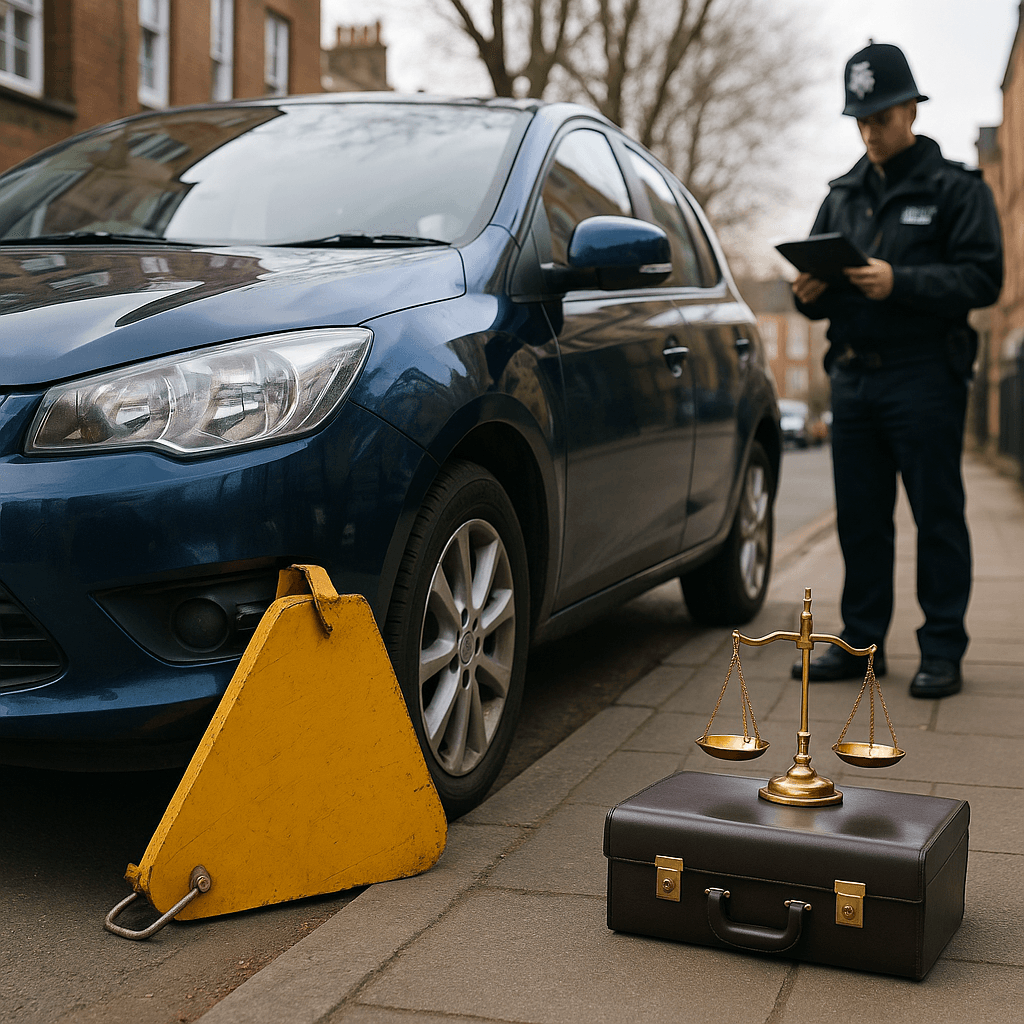
Understanding UK Vehicle Clamping Laws: What You Need to Know
Carlos Mendoza
•5 min read
Understanding UK Vehicle Clamping Laws: What You Need to Know
Picture this: you’re heading out the door to start your day, coffee in hand, only to find your vehicle immobilised with a clamp. Frustration sets in, and a whirlwind of questions follows. How did this happen? Is it legal? And most importantly, what can you do about it? Understanding UK vehicle clamping laws can save you time, money, and a considerable amount of stress. Let’s dive into the essentials.
The Legal Framework of Vehicle Clamping in the UK
To begin, it's crucial to know that clamping laws in the UK vary depending on whether you’re parked on public or private land. The Protection of Freedoms Act 2012 made it illegal for private landowners to clamp vehicles in England and Wales. However, this doesn’t mean you’re free from clamping entirely.
Legal Clamping Scenarios
-
Public Roads and Council Land: Local councils have the authority to clamp vehicles on public roads for violations such as unpaid parking fines or persistent evasion of traffic tickets. They must adhere to specific regulations and procedures, ensuring that clamping is a last resort after ample notice has been given.
-
Private Land in Scotland and Northern Ireland: Unlike England and Wales, clamping on private property in Scotland and Northern Ireland is still legal. Here, landowners or authorised companies can clamp vehicles, but they must follow stringent guidelines to avoid legal repercussions.
-
DVLA and Untaxed Vehicles: The Driver and Vehicle Licensing Agency (DVLA) in the UK can also clamp vehicles that are untaxed. The agency has the right to clamp vehicles parked on public roads or even on private property if the vehicle tax has not been paid.
Understanding these scenarios can help you navigate the murky waters of vehicle clamping. But what does it actually mean for you?
Who Can Clamp Your Vehicle?
In most cases, the entities that can clamp your vehicle are limited to:
- Local Councils: For unpaid parking penalties and other traffic violations.
- DVLA: For untaxed vehicles.
- Police Authorities: In some cases, for vehicles suspected of being involved in criminal activities.
Pro Tip: Always ensure your vehicle tax is up-to-date and keep track of any parking tickets to avoid unexpected clamping.
What to Do if Your Vehicle is Clamped
Finding your vehicle clamped can be a distressing experience, but knowing the right steps to take can make the process smoother.
Immediate Steps
-
Read the Notice: There should be a notice attached to your vehicle explaining why it has been clamped and how you can have it released. This notice will provide essential contact information and instructions.
-
Contact the Clamping Authority: Use the contact information provided to speak with the relevant authority. They will inform you of the release fee and any other necessary actions.
-
Pay the Release Fee: Once you understand the reason for clamping, you’ll need to pay the fee to have the clamp removed. Note that additional penalties may apply if the vehicle is not released promptly.
-
Follow Up: If you believe the clamping was unjustified, gather evidence and contact the relevant authority to dispute the clamping. This might involve appealing to the council or the DVLA, depending on the situation.
Preventive Measures
- Stay Current on Vehicle Tax: Ensure your vehicle tax is up to date. The DVLA has the power to clamp untaxed vehicles without prior warning.
- Pay or Appeal Parking Tickets Promptly: Ignoring parking fines can lead to clamping. If you believe a ticket was issued unfairly, appeal it immediately rather than let it linger.
- Be Aware of Local Parking Rules: Familiarise yourself with the parking regulations in your area to avoid unnecessary fines or clamping. Councils often have detailed information on their websites about local parking rules.
Real-Life Scenarios
Consider the case of James, a busy professional in Manchester. He parked on a public road but neglected to pay several parking tickets. One morning, he found his car clamped by the local council. By following the steps above, he quickly contacted the council, paid the necessary fines, and resolved the situation, learning a valuable lesson about staying on top of parking regulations.
Or take Lisa, who resides in Edinburgh. She was shocked to find her car clamped on private property one day. A call to the property management revealed that clamping is still legal in Scotland. After paying the release fee, she took steps to ensure she parked in designated visitor spots in the future.
Next Steps
Vehicle clamping can be a nuisance, but understanding your rights and responsibilities can mitigate the hassle. Remember to:
- Stay Informed: Regularly check for any updates to vehicle and traffic laws in your area.
- Keep Records: Maintain records of all parking tickets and payments to avoid disputes.
- Act Promptly: Whether paying a fine or appealing a decision, acting quickly can save you time and money.
By proactively managing your parking habits and staying informed about UK vehicle clamping laws, you can protect your vehicle and your peace of mind. Remember, knowledge is power, and in this case, it's the key to keeping your wheels rolling smoothly.